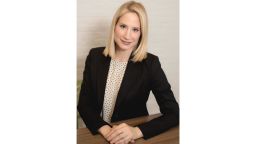Editor’s Note: Caroline Polisi is a federal and white collar criminal defense attorney in New York City and is Of Counsel at Pierce Bainbridge. She frequently appears on CNN as a legal analyst and is an anchor at the Law & Crime Network, providing live legal analysis on the country’s high profile court cases. Follow her on Twitter: @CarolinePolisi. The views expressed in this commentary are her own.
What can we learn about the Russia probe from the thousands of pages released by the Senate Judiciary Committee Wednesday? The voluminous testimony and exhibits pertaining to the June 2016 Trump Tower meeting – including 224 pages of Donald J. Trump Jr.’s testimony from September 7, 2017 – tell us much about two key prongs of interest in Special Counsel Robert Mueller’s investigation into Russian interference in the 2016 presidential election. The first is attempted coordination between the Trump campaign and Russia, and the second is possible obstruction of justice regarding the investigation into that potential collusion.

And Trump Jr.’s testimony? It’s a predictable variation on the recent theme we’ve seen emerge over the past few weeks from team Trump’s explanations regarding the Stormy Daniels hush money payment: inconsistencies abound.
In the transcript from Trump Jr.’s testimony, he says, “(I)n his email to me Rob suggested that someone had official documents and information that would incriminate Hilary Clinton and her dealings with Russia and that the information would be very useful to the campaign.” The email he refers to is from Rob Goldstone, the publicist, to Trump Jr. on June 3, 2016, and that “someone” turned out to be Russian lawyer Natalia Veselnitskaya, who attended the June 9, 2016 Trump Tower meeting along with Trump Jr., Paul Manafort (Donald Trump’s then-campaign manager), and Trump’s son-in-law Jared Kushner. We now know that – despite her early denials of ties to Putin – Veselnitskaya is, in fact, a Russian informant.
Remember, federal law prohibits foreign nationals, directly or indirectly, from making contributions, donations of money – or any “thing of value,” in connection with a federal election.
In the context of this particular charge, “knowingly” refers to the state of mind of the person accepting the thing of value, and NOT knowledge of the law prohibiting accepting money from foreign nationals. So the argument that perhaps Trump Jr. was simply such a political neophyte that he may not have been aware of the laws surrounding campaign contributions doesn’t hold up.
His testimony indicates that he knew he was getting “official documents” that could be “very useful to the campaign.” That testimony falls squarely within the campaign finance law statutes and at least suggests that there was a willingness on the part of Trump Jr. to engage in preliminary discussions “regarding the acceptance of such information, which could be considered a “thing of value” under the law.
Regarding the now infamously misleading statement that Trump Jr. released after news of the June 2016 meeting broke – that the participants had “primarily discussed a program about the adoption of Russian children” – his testimony reveals that his account of what happened diverges materially from reporting by the Washington Post. The Post reported in July 2017 that “according to people with knowledge of events,” President Trump actually dictated the statement on the way home from Germany on Air Force One on July 8 of that year.
When asked by the Judiciary Committee how his statements regarding the meeting evolved, and whether his father in fact drafted the statement, Trump Jr. responded: “I don’t know. I never spoke with my father about it.” When asked if he knew if Trump had provided any “edits” or “input” to the statement, he said “(h)e may have commented through Hope Hicks.”
According to Trump Jr., when Hicks asked Trump Jr. if he wanted to speak directly to his father about the statement, Trump Jr. said, “I chose not to because I didn’t want to bring him into something that he had nothing to do with.”
Regardless of whether or not any “dirt” on Hillary Clinton actually materialized after the Trump Tower meeting, any effort on the part of Donald Trump or Trump Jr. to mislead investigators (including through the issuance of public statements) about the nature of the meeting could certainly be used as evidence of the Trump campaign’s coordinated effort to obfuscate the story of what actually took place. Of course, the culminating piece of evidence in any obstruction of justice case would likely be the firing of FBI director James Comey.
This document dump, on the eve of the one-year anniversary of Mueller’s appointment to investigate Russian interference in the 2016 presidential election, is providing more fodder for the special counsel to scrutinize the underlying motivations of both Trump himself and other key players in the saga, and to check the veracity of Trump Jr.’s statements against the actual facts.















